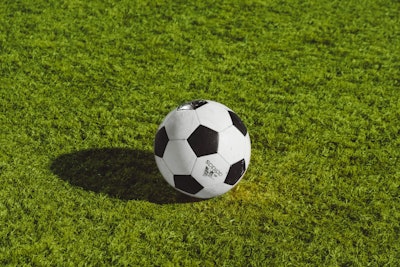
New research from the University of Georgia published in the Orthopedic Journal of Sports Medicine suggests that high school students who specialize in one sport are more likely to get injured and suffer from burnout.
The study surveyed 975 high school athletes in the U.S. and found more than one in five reported a high level of specialization in one sport. More than 42 percent reported a small level of specialization.
“A number of studies have pointed out that if you specialize in one sport, for example you only play baseball or you only play football, you’re doing the same movements over and over again, so there are a lot of issues with repetitive use injuries,” said Dee Warmath, lead author of the study and an assistant professor in the College of Family and Consumer Sciences. “Other studies pointed out that there’s also an association with burnout. You want young adults to be engaged in their sport, and there are a lot of benefits of that. But if all you do year-round is play soccer, there’s a risk you’ll get burned out and possibly leave the sport.
Warmath suggests it's important for parents and coaches to understand a young athlete's motivation for wanting to specialize and to develop a plan to encourage them to diversify.
“We might need a more balanced approach to dealing with sport specialization when athletes are engaging in it for what are really positive reasons,” said Warmath, who is based in the Department of Financial Planning, Housing and Consumer Economics. “So instead of saying sport specialization is bad and you shouldn’t do it, maybe it’s more about finding ways to compete more effectively and emphasizing how even some professional athletes use other sports to train for their primary sport. This diversity of sports can make you better in your primary sport.”
The study found that athletes who planned to play a sport in college were more likely to have a high level of specialization, and those who enjoyed competition were also more likely to specialize. Those who engaged in a variety of sports were more likely to be contrarians and were more likely to challenge and argue with other people.
“It’s like telling someone that they could have a wreck while driving, so they shouldn’t drive because they won’t have a wreck that way,” Warmath said. “We need to recognize that athletes engage in sports specialization for what are really positive reasons: They want to get better at their sport. They want to compete more effectively.”





































